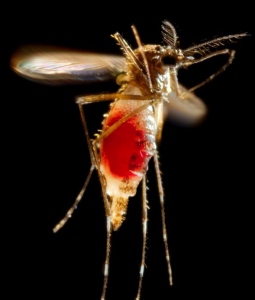By NewsDesk @infectiousdiseasenews
Officials with Thailand’s Epidemiology department reported an additional 685 chikungunya cases in the past week.

This brings the country’s total to 8,363 cases through Sept 5 from 70 of the 77 Thai provinces. No deaths have been reported.
Chanthaburi, Uthai Thani, Lamphun, Rayong and Loei provinces saw the highest incidence.
Chikungunya virus (CHIKV) is transmitted by the bite of Aedes mosquitoes, particularly Aedes aegypti and Aedes albopictus. In humans bitten by an infected mosquito, the disease symptoms usually appear after an incubation period of three to seven days (range 1- 12 days).
CHIKV can cause acute, sub-acute, and chronic disease.
In acute disease, symptoms develop abruptly and include high fever, headache, myalgia and arthralgia (predominantly in limbs and large joints). The appearance of a maculopapular rash is also frequent. Severe forms of the disease are rare. Symptoms usually resolve in 7-10 days, although arthralgia and joint stiffness may persist intermittently for several months.
The disease shares some clinical signs with dengue and Zika, and can be misdiagnosed in areas where they are common. As there is no cure, treatment is focused on relieving the symptoms.
- Chikungunya vaccine enters Phase 3 clinical trial
- Bat ticks in New Jersey: ‘Soft’ tick species can pose a risk to public health
- Florida: 2nd Naegleria fowleri case reported this summer
- Rabies: Additional death reported in Sarawak, Malaysia
- Convalescent plasma is safe to use in pediatric patients with COVID-19: Study
- Colorado reports 2nd human plague case of 2020


